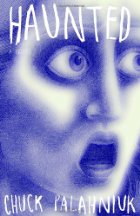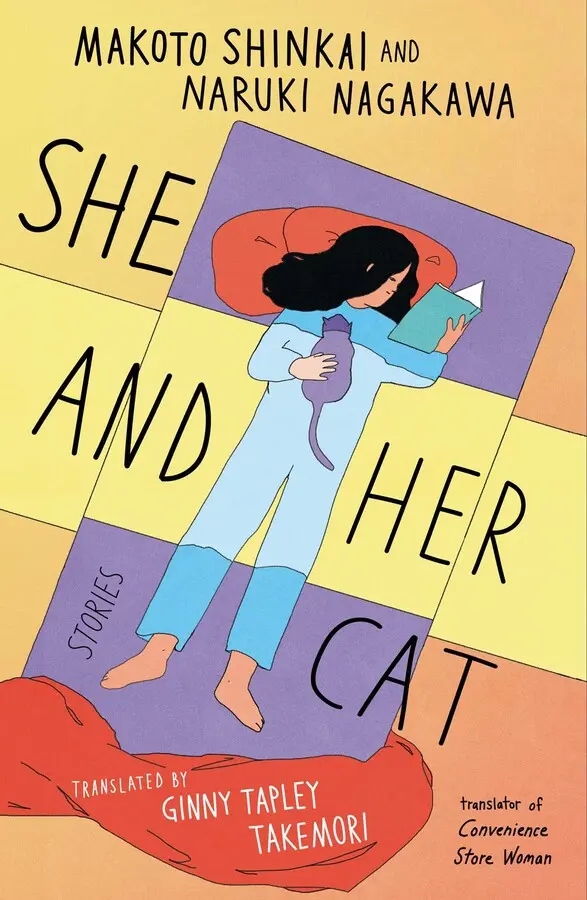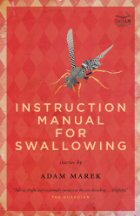Archive
Announcement: Sign Up to Get FREE Advanced Reader Copies (ARCs) of My Upcoming 2024 Releases!

I’m so excited to announce that sign ups are now open to receive Advanced Reader Copies of my upcoming 2024 book releases! You can sign up for all of them, one, or a couple.
My releases planned for 2024 are:
- A sweet sapphic short story collection (June)
- A pro-environmentalism scifi novel that also confronts grief and disordered eating (late summer)
- The sequel to Ecstatic Evil a m/f paranormal romance (fall)
This list and schedule are subject to change!
Although difficult topics may be addressed in my books, I strive for my work to end on an uplifting note.
- Any scifi or fantasy I write would be rated PG13 or less if it was a movie.
- Please note that any romance I write is closed door.
- I’m a queer, bisexual author. Sometimes my romances are m/f, sometimes sapphic, sometimes other queer pairings or mentions of poly relationships. Most of my stories have queer people somewhere in them, even if they aren’t the main characters. If that’s not cool with you, please don’t sign up.
- All of my books start with a content note. You can see examples by reading the free samples available for Bloemetje, Ecstatic Evil, and Waiting for Daybreak.
If you sign up to receive an ARC, you will receive:
- an email from me without any attachments letting you know the book is coming soon and to keep an eye out on your inbox and spam (approximately 2 to 3 weeks prior to publication date)
- an epub file of the book to your email address provided 1 to 2 weeks prior to publication date
In exchange for the free book you will:
- post an honest review of the book wherever you review books (ie Amazon, GoodReads, Storygraph, a blog, Instagram, TikTok, etc…)
- not share the epub file with anyone else
If you decide not to read the book after receiving it due to the content note or it just not turning out to be a match for you, that’s ok!
*If you change your mind about receiving ARC(s) after signing up, just email me at mcneil.author [at] gmail [dot] com, and I’ll remove you from my list.
Book Review: She and Her Cat by Makoto Shinkai and Naruki Nagakawa
Interconnected short stories explore the relationships between women and their cats in a Japanese city.
Summary:
Lying alone on the edge of the sidewalk in an abandoned cardboard box, a nameless narrator contemplates the indifferent world around him. With his mother long gone, his only company is the sound of the nearby train. Just as he fears that the end is near, a young woman peers down at him, this fateful encounter changing their lives forever.
So begins the first story in She and Her Cat, a collection of four interrelated, stream-of-conscious short stories in which four women and their feline companions explore the frailty of life, the pain of isolation, and the limits of communication.
With clever narration alternating between the cats and their owners, She and Her Cat offers a unique and sly commentary on human foibles and our desire for connection.
Review:
When I saw this collection of interconnected short stories about women and their cats, I couldn’t hit the request button fast enough. One of my favorite short story collections is James Herriott’s Cat Stories. I’m always on the lookout for something similar. This delivered in more ways than I was anticipating. I didn’t realize the stories would be interconnected, and that really adds something to the collection as a whole. Makoto Shinkai is a well-known animator and filmmaker. His most recent anime is Suzume no Tojimari but this book was actually originally an anime short in 1999 as well.
The stories alternate between a human and a cat perspective. Whether it’s a human or a cat is indicated by the section break. If it’s a human, it’s a usual decorative scene break. If it’s a cat, it’s the silhouette of a cat. The first story opens from the perspective of a cat who is the runt of a litter in a cardboard box listening to the sound of a train. The cat is clearly about to die but then a woman’s face appears and takes him in. He becomes an indoor/outdoor cat. I won’t spoil the trajectory of the whole story, but where the interconnectedness comes in is that this cat (Chobi) meets a young cat while outside who shows him a woman who feeds her fish when she shows up in her yard. The next story is then this cat’s perspective. And so all of the stories have these connections between the cats, but also slowly the humans come to be connected, largely thanks to their cats.
The stories offer subtle but insightful commentary both into universal aspects of human nature and into more specific aspects of Japanese culture that impacts these women’s lives. I’m not an expert by any means on Japan, but I do know, for example, that there’s a problem with toxic work cultures where people stay at the office overnight and don’t come home. This is one of the issues addressed in the stories. The animals also offer commentary on human nature and bigger life questions (like what happens after we die). it reminded me a little of animal fables in that it was the animals offering these lessons to each other, wanting to help humans, and yet the humans couldn’t understand them.
Where the stories really shine, though, is in showing the relationship between, as the book says, she and her cat. The unconditional love of the cats for their owners is heart-wrenching and left me near tears. This line in particular shone to me. It’s from the perspective of a cat with an owner who is struggling with loneliness.
I couldn’t do anything about her problems. I just lived my days at her side.
loc 443
There were two things that held me back from five stars. First, sometimes I did get confused about who was speaking. This is because in some stories it’s not just the owner who is a human perspective. So it’s not a straightforward swap back and forth between the cat and her owner – sometimes there were other humans in there too. Second, one male cat calls his owner his girlfriend and that gave me the heebie-jeebies. Perhaps that was a translation issue, though.
Overall, this is a delightful collection of short stories that is sure to please any cat lover. With full page illustrations throughout, it would make a great gift.
If you found this review helpful, please consider tipping me on ko-fi, checking out my digital items available in my ko-fi shop, buying one of my publications, or using one of my referral/coupon codes. Thank you for your support!
4 out of 5 stars
Length: 144 pages – novella
Source: NetGalley
Buy It (Amazon or Bookshop.org)
Book Review: Nightmare at 20,000 Feet – Horror Stories by Richard Matheson
Summary:
Remember that monster on the wing of the airplane? William Shatner saw it on The Twilight Zone and Bart Simpson saw it too. “Nightmare at 20,000 Feet” is just one of many classic horror stories by Richard Matheson that have insinuated themselves into our collective imagination.
Here are more than twenty of Matheson’s most memorable tales of fear and paranoia. Personally selected by Richard Matheson, the bestselling author of I Am Legend and What Dreams May Come, these and many other stories, more than demonstrate why he is rightfully regarded as one of the finest and most influential horror writers of our generation.
Review:
I picked this up because I remembered enjoying I Am Legend (although my review is only 3 stars, when I looked it up just now…) I also had familiarity with The Twilight Zone episode based on the first story in the collection. I individually rated each of the twenty stories then calculated the average to give the collection a rating.
I rated two stories 5 stars. “Mad House” (made me make shocked and thrilled faces) and “First Anniversary” (I called it timeless in my notes). The former is a very meta commentary on being a writer. The latter reminded me of Buffy in that who you’ve fallen in love with changes, only in this case it was the woman changing instead of the man.
There were quite a few stories that I found moderately engaging and enjoyed their historic vibe. Like “Disappearing Act,” whose whole idea is it’s someone’s personal notebook left in a cafe. Or “Crickets” whose idea is what if crickets’ chirps are really a form of Morse code?
But there are also two stories where, just, the entire structure idea is racist. One “The Children of Noah” involves the idea that a town’s inhabitants are all the descendants of a sea captain and his Pacific Islander bride. The racist part is that they’re dangerous BECAUSE of being part Pacific Islander. The story “Prey” is about a “Zuni” doll that’s inhabited by the spirit of a great warrior. The whole idea made me cringe. One story, “The Distributor” confused me so much that I’m still not sure what the overall point was. A character who I think is a bad guy uses the the n word and another racial slur, but it’s a little unclear to me if he was meant to be a bad guy.
There are also definitely outdated gender ideas here. The least offensive is that it’s oh so scary for teenage girls to wage war as witches in “Witch War.” The worst is “The Likeness of Julie.” Most of the story is from the perspective of a college undergrad male rapist. That’s bad enough. If you want to know how it manages to get worse, check out the spoiler paragraph below in brackets.
[The twist ending is that the college woman he rapes, Julie, in fact got inside his mind supernaturally and made him rape her. It’s the worst victim blaming I’ve seen in forever, and I honestly wanted to scrub my own brain out with soap. I’m suspicious that Matheson knew on some level how awful this story was, because the collection notes that he published it under the pseudonym of Logan Swanson in Alone by Night, which appears to have been some sort of anthology.]
So, there we have it. Some stories manage to be timeless. But definitely not all. Come into this collection prepared for a mixed bag.
If you found this review helpful, please consider tipping me on ko-fi, checking out my digital items available in my ko-fi shop, buying one of my publications, or using one of my referral/coupon codes. Thank you for your support!
4 out of 5 stars
Length: 336 pages – average but on the longer side
Source: Purchased
Buy It (Amazon or Bookshop.org)
Book Review: I, Robot by Isaac Asimov (Series, #0.1) (Bottom of TBR Pile Challenge)
 Summary:
Summary:
This collection of short stories tells the history of the invention and gradual improvement of robots. The robots in this future must follow the 3 Laws of Robotics:
- A robot may not injure a human being or, through inaction, allow a human being to come to harm.
- A robot must obey the orders given to it by human beings, except where such orders would conflict with the First Law.
- A robot must protect its own existence as long as such protection does not conflict with the First or Second Law.
But following these laws doesn’t always have quite the outcome the inventors and managers of robots intended.
Review:
I wasn’t aware I, Robot is actually a short story collection. It’s precisely the type I enjoy though because they all work together to tell one overarching story in order. Beginning with the earliest robots, they slowly move up through important points in the history of robotics to lead up to the world run by big brain machine robots that Asimov has imagined. This collection is a prequel of sorts (and of many) to Asimov’s robot series that begins with The Caves of Steel
(list of entire series).
One thing I like about the world Asimov sets up is that unlike many scifi books featuring AI, the people in Asimov’s world are highly, intensely cautious of robots. They’re very concerned about robots taking jobs, killing humans, and even robbing humans of their autonomy. It sets up a conflict from the beginning and frankly presents the humans as just a bit more intelligent than in some AI scifi universes.
I was under the impression from pop culture that in I, Robot they think they’re protected by the Laws of Robotics but something happens so that the robots aren’t programmed with them any longer. That’s not what happens at all. What happens is much more complex. How the robots interpret the Laws and how the Laws work end up being much more complex and less straight-forward than the humans originally imagined, so much so that they have to have a robopsychologist to help them interpret what’s going on with the robots. This is really quite brilliant and is one of my favorite aspects of the book.
Unfortunately, the book can read a bit sexist sometimes, in spite of having a female protagonist through quite a bit of the book. (The robopsychologist is a woman). The book was first published in 1950, though, so when you think about the time period, the sexism is pretty minor, especially compared to having a female worldwide expert on robopsychology. The main time sexism comes up is when the leader of Europe is a woman and says some self-deprecating things about difficulty leading because she’s a woman. Yes, there is older scifi that avoids sexism pretty much entirely, but I am able to give this instance a bit of a pass considering the other strong portrayal of a woman in a leadership role. But be aware that at least one cringe-inducing sexist conversation does occur.
Overall, this piece of classic scifi stands the test of time extraordinarily well. Its film adaptations do not do it proper service at all. Come to this book expecting a collection of short stories exploring robopsychology, not an action flick about killer robots. Recommended to scifi fans.
4 out of 5 stars
Source: Harvard Books
Book Review: Haunted by Chuck Palahniuk (Bottom of TBR Pile Challenge)
 Summary:
Summary:
A bunch of people sign up, individually, for a writer’s retreat. Telling no one where they’re going, they vow to write the next great American novel. They wind up locked away in the opposite of the lap of luxury, however. Trapped in a dusty old theater, they quickly become focused on an entirely different type of story. What happens to these writers is interspersed with poetry about each person and short stories written by each of them while locked in the retreat.
Review:
I am a huge Palahniuk fan. Fight Club spoke to me when I was at my late teens most intense angst that is indescribable. To this day, I view the book (and the movie) as exemplary artforms that demonstrate how genre literature can say something incredibly serious and deep. I also point to Palahniuk as a way to say that vulgarity and horror do not equate to bad writing. All of which is to say, I’m pretty biased toward being a fan of anything Palahniuk does. Just so you’re aware.
I struggle with short story collections. I like them to be all connected somehow, even if it’s just by theme, so at first I really liked the idea of a collection of short stories written by people at a writer’s retreat. It’s a good idea, but it’s not executed very well. The short stories are awesome! The connecting bits of narrative aren’t so much. Basically, the writers decide that they should spin what happens at the retreat to be as horrible as possible to help get a movie deal out of it after the fact. So they focus on twisting the facts and committing atrocities against themselves and each other to make for a better story. I totally got what is being said about writers procrastinating by making drama in their own lives instead of actually writing. I liked that part. But there also wasn’t enough realness in the connecting bits to keep me interested. I found myself dreading them whereas I really enjoyed the short stories, which made for an uneven reading experience.
One of the short stories contained in this collection is Palahniuk’s famous “Guts.” The one that makes people faint. (Palahniuk has made it available online for free here). This was definitely the best short story in the collection, and I can see why it became so famous. It also sets the tone for a lot of the stories in the collection. There’s one with people randomly getting smashed in a city. There’s also one about the possible origins of the Sasquatch myth. My second favorite after “Guts” was actually about an inn near a hot springs in the mountains. That one grossed me out *almost* as much as “Guts,” and also had something deeper to say, I think. All of this is to say that if you read and enjoyed “Guts,” you’ll like the short stories in this collection. They’re gross, horrifying, and stick with you.
Overall, it’s an interesting idea for unifying a short story collection. Ultimately, though, I would have liked it better as a straight-up short story collection, maybe even including the writer’s retreat as a short story by itself. This fact might make me rate the book lower, but the inclusion of so many high quality short stories keeps the book itself rating highly. Grab this if you’ve read and enjoyed “Guts.”
3.5 out of 5 stars
Source: Brookline Booksmith














